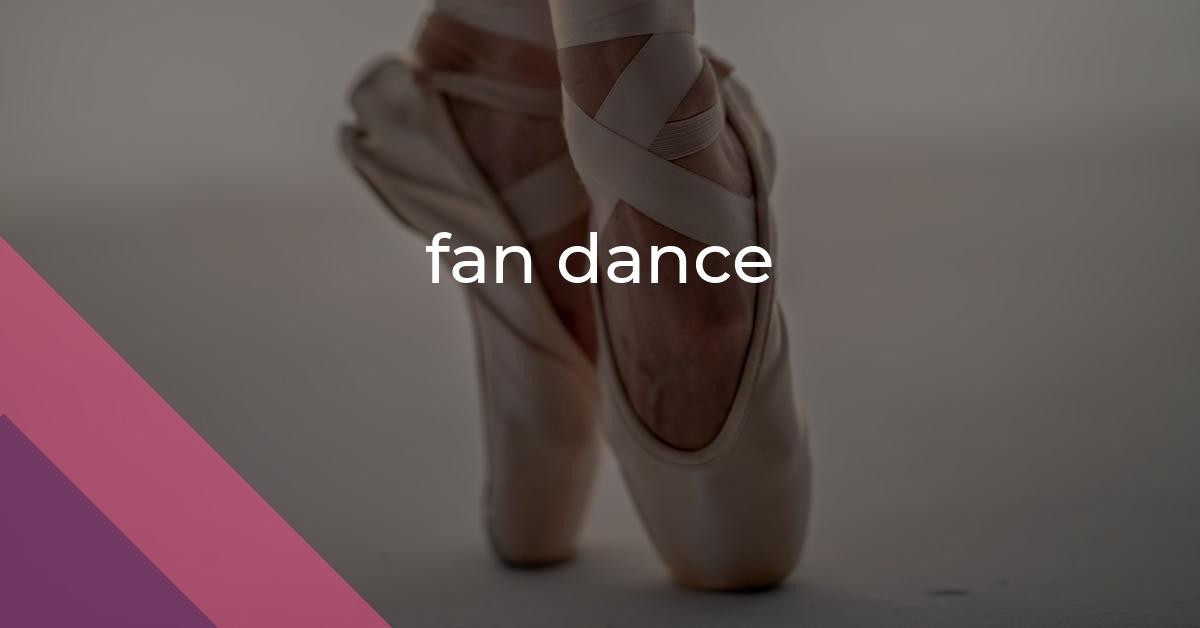fan dance: Idiom Meaning and Origin
What does ‘fan dance’ mean?
The idiom "fan dance" refers to a situation where someone deliberately conceals their true intentions or motives behind a showy or distracting display, similar to the traditional dance performed with decorative fans used to hide the body. It implies a sense of deceit or manipulation.

Idiom Explorer
The idiom "keep up appearances" means to maintain a certain image or perception, often to hide the true situation or feelings.
The idiom "hit the fan" is used to describe a situation where something goes terribly wrong or chaotic, often as a result of a secret or scandal being revealed. It implies a sudden and explosive response to the situation.
The idiom "hide in plain sight" means to conceal oneself or something in a way that is not obvious or easily noticed, even though it is in a highly visible or noticeable place.
The idiom "hand waving" refers to the act of making exaggerated or vague gestures, often used to dismiss or downplay an argument or issue without providing substantial evidence or logical reasoning.
The idiom "ham it up" means to overact or exaggerate a performance or behavior in a way that is not natural or genuine.
The idiom "for show" means doing something only to give the appearance of it, without any real substance or intention behind it.
The idiom "fly low" means to behave in a discreet or secretive manner, usually to avoid attention or detection.
"Fan the flames" means to intentionally make a situation or conflict worse by increasing hostility or inciting more intense emotions.
The idiom "do with mirrors" means to create an illusion or deceive someone by using tricks or misdirection.
Fan dance allure
A fan dance is an idiom used to describe a deceptive act or performance. The origins of this idiom can be traced back to traditional Chinese dances, where fans were used as props. The fan dance was characterized by the graceful and delicate manipulation of the fan, creating an illusion of beauty and elegance.
Over time, the term "fan dance" has evolved to be used metaphorically. It refers to any situation where someone deliberately creates a diversion or distraction to conceal their true intentions or motives. It implies a skillful manipulation of attention and focus, allowing the person to carry out their actions unnoticed or without suspicion.
The idiom "fan dance" can also be associated with the concept of misdirection in magic tricks. Magicians often use props or gestures to divert attention away from the actual trick, creating an illusion that captivates and fascinates the audience. In this sense, the fan dance represents the art of deception, captivating the audience while concealing the true method or purpose behind the act.
Furthermore, the idiom can be interpreted in a broader context, beyond just trickery or deception. It can be seen as a metaphor for the complexities and hidden agendas of human interactions. Just as a fan dance can captivate and mesmerize spectators, people may project a veneer of charm or friendliness to hide their true emotions or motives.
The idiom "dance attendance" is closely related to the concept of a fan dance. It refers to someone who humbly and attentively serves or supports another person. It can be likened to the role of a fan dancer, who uses their performance to captivate and divert attention while the true purpose or intention remains concealed. In both cases, there is an element of deliberate distraction and concealment behind an outward display of skill and grace.
Similarly, the idiom "dance of the seven veils" is connected to the notion of a fan dance. It originates from the biblical story of Salome, who performed a seductive dance for King Herod. The dance involved the gradual removal of seven veils, symbolizing the unveiling of hidden desires or secrets. This dance can be seen as a metaphor for the deceptive nature of a fan dance, where the true intentions or motives are shrouded behind an enticing and captivating performance.
Lastly, the idiom "devil dancing" relates to the idea of a fan dance as well. It refers to a wild or frenzied dance that is associated with demonic or supernatural entities. It signifies a form of intense and uninhibited movement, often accompanied by rituals or ceremonies. This can be paralleled with the energy and mesmerizing qualities of a fan dance, where the dancer captivates the audience through their skillful manipulation of the fan, creating an illusionary spectacle.
The idiom "fan dance" encompasses various meanings that go beyond its literal origins in traditional Chinese dances. It represents the art of skillful deception and diversion, whether in the context of misdirection in magic tricks or as a metaphor for hidden agendas in human interactions. The related idioms "dance attendance," "dance of the seven veils," and "devil dancing" further emphasize the deceptive and captivating nature of a fan dance, highlighting the multifaceted layers of meaning within everyday language.
Example usage
Examples of how the idiom fan dance can be used in a sentence:
- She performed a beautiful fan dance at the cultural festival.
- The politician engaged in a fan dance during the interview, avoiding direct answers to the difficult questions.
- The company's financial reports were nothing more than a fan dance, hiding the true state of their profits.
More "Dance" idioms



